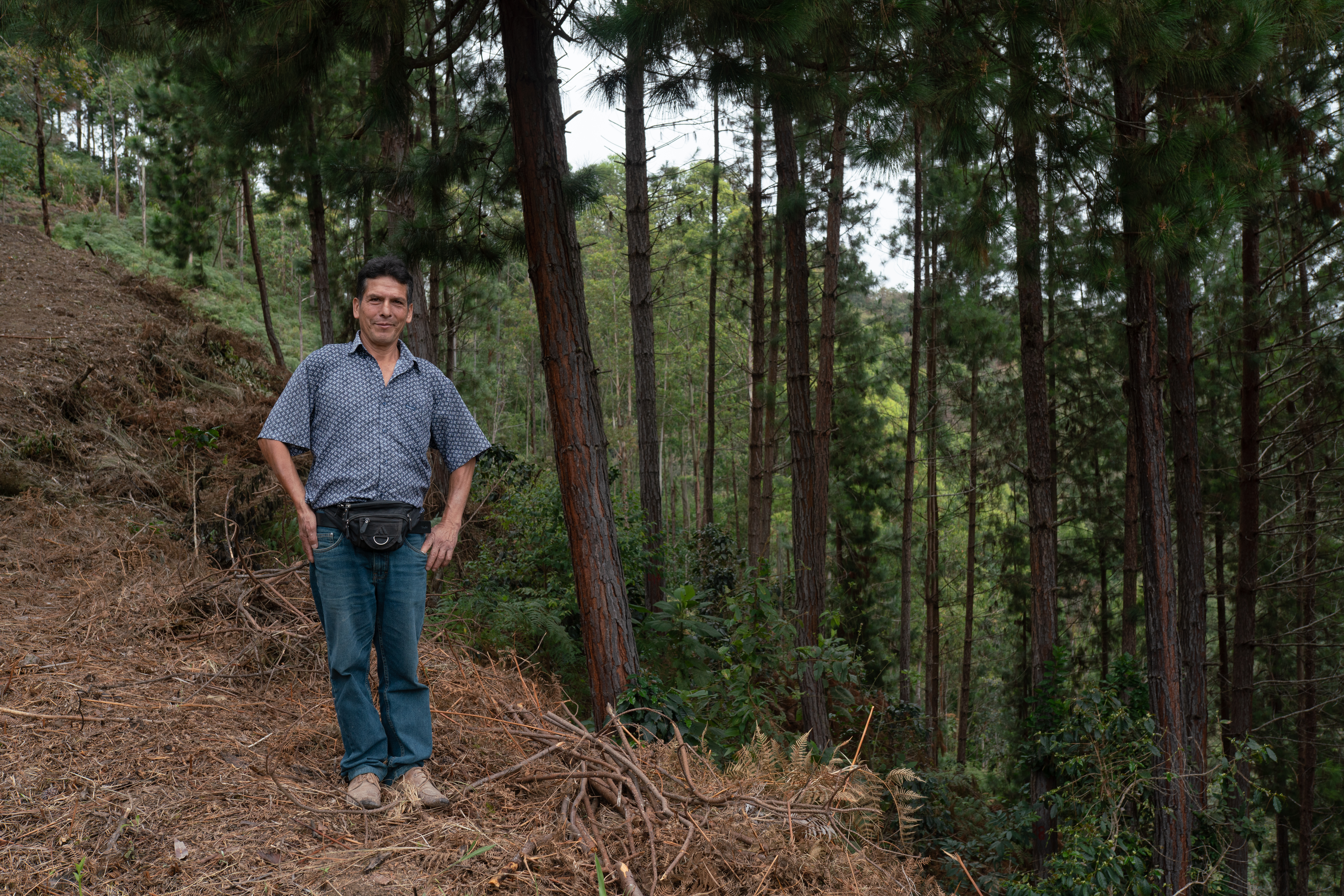 CENFROCAFE producer member Anselmo Díaz on his coffee farm. Rumi Bamba, Las Pirias, Jaen, Cajamarca, Peru. October 8, 2022. Credit: James Rodriguez.
CENFROCAFE producer member Anselmo Díaz on his coffee farm. Rumi Bamba, Las Pirias, Jaen, Cajamarca, Peru. October 8, 2022. Credit: James Rodriguez.
Root Capital is pleased to share a new report showing the potential of environmental payments to reward farmers for their use of carbon-friendly, agroforestry practices. This report is the result of three years of collaboration with our partners the CAC Pangoa, CENFROCAFE, Cool Farm Alliance, Cooperative Coffees, COMSA, Manos Campesinas, Norandino, Sol y Café, Sustainable Food Lab, and The Chain Collaborative, with generous funding from the EcoMicro program of the Inter-American Development Bank. Smallholder farmers are among the least responsible for climate change and are championing solutions to the climate crisis.
Leading coffee farmers have already demonstrated that regenerative agroforestry practices-such as planting shade trees and applying organic compost to build soil health-lead to numerous social, economic, and environmental benefits. Yet the coffee industry largely does not recognize the value generated by farmers’ agroforestry practices.
In 2019, Root Capital joined with the partners listed above to test an alternative model that compensates producers for their environmental services. This innovative project used the Cool Farm Tool, a greenhouse gas calculator, to measure farmers’ carbon performance. Cooperative staff collected data from their own farmers with the support of Root Capital’s Digital Business Intelligence Advisory. Importantly, our project used a new Cool Farm Tool methodology that better accounts for carbon sequestered or removed from the atmosphere. As the first project to use the enhanced tool within the context of coffee production, this project contributes new primary data on the important climate mitigation benefits provided by coffee farmers.
Of the 370 farms participating in the project, 55 percent scored as “carbon negative” via the Cool Farm Tool, with a median carbon footprint of -3.8 kilograms (kg) of carbon dioxide equivalent (CO2e) per kg of green bean equivalent (GBE) coffee produced.
In other words, most coffee farms in the study sequester more carbon than they emit each year.
Another 20 percent of farms scored near carbon neutral, generating between 0 and 1 kg CO2e per kg GBE. Overall, farms reported a median carbon footprint of -0.6 kg CO2e per kg GBE.
Our partner Cooperative Coffees used these findings to inform over $150,000 in environmental payments to participating cooperatives. Cooperatives are now using the payments to support their members. Four cooperatives, for example, are investing more in shade trees to provide both carbon and food security benefits for farmers. Others are expanding the production of organic fertilizer or issuing bonus payments to farmers.
Project results demonstrate the important role organic, agroforestry coffee production can play in reducing and storing carbon emissions, as well as the potential of carbon payments to reward farmers for their efforts as environmental stewards. And they show the value of partnering with producer organizations to collect, report on, and (most importantly) act on carbon data to advance both climate and livelihood objectives.
Yet many barriers remain to scaling carbon accounting and, most importantly, carbon compensation across smallholder supply chains. In particular, we found that farm-level carbon measurement requires material new investment by farmers and businesses. Producer organizations look to supply chain partners to help cover these new costs, to avoid burdening farmers already buffeted by climate change, market challenges, and other shocks.
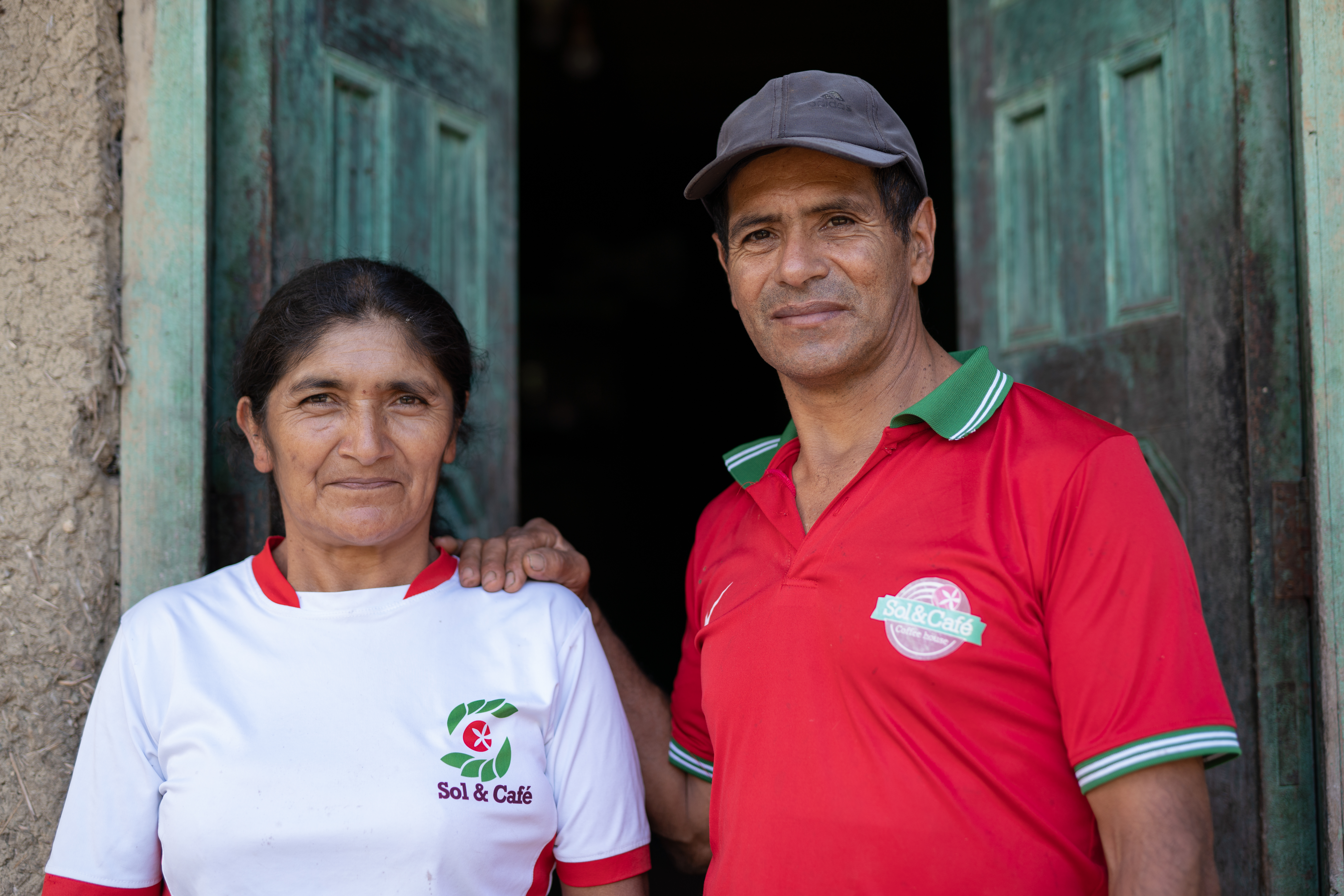 Sol&Cafe producer member, Jose Renulfo Perez, in front of his home along with his wife Filomena Bernal, 56. El Nogal, Jaen, Cajamarca, Peru. October 9, 2022. Credit: James Rodriguez
Sol&Cafe producer member, Jose Renulfo Perez, in front of his home along with his wife Filomena Bernal, 56. El Nogal, Jaen, Cajamarca, Peru. October 9, 2022. Credit: James Rodriguez
But we found that as the climate crisis intensifies, the actors most responsible for climate change bear a responsibility to decarbonize in a manner that does not further jeopardize vulnerable communities. We see significant potential for carbon or broader environmental payments to help address the interrelated crises of climate change and poverty in smallholder coffee communities-if implemented in partnership with producer communities and in a manner that centers their needs.
To learn more, read the executive summary, download the full report or watch the accompanying webinar.
Blog and report photos provided by James Rodriguez for Cooperative Coffees and by Root Capital.
Feeling inspired? Support our work!
You may also be interested in...
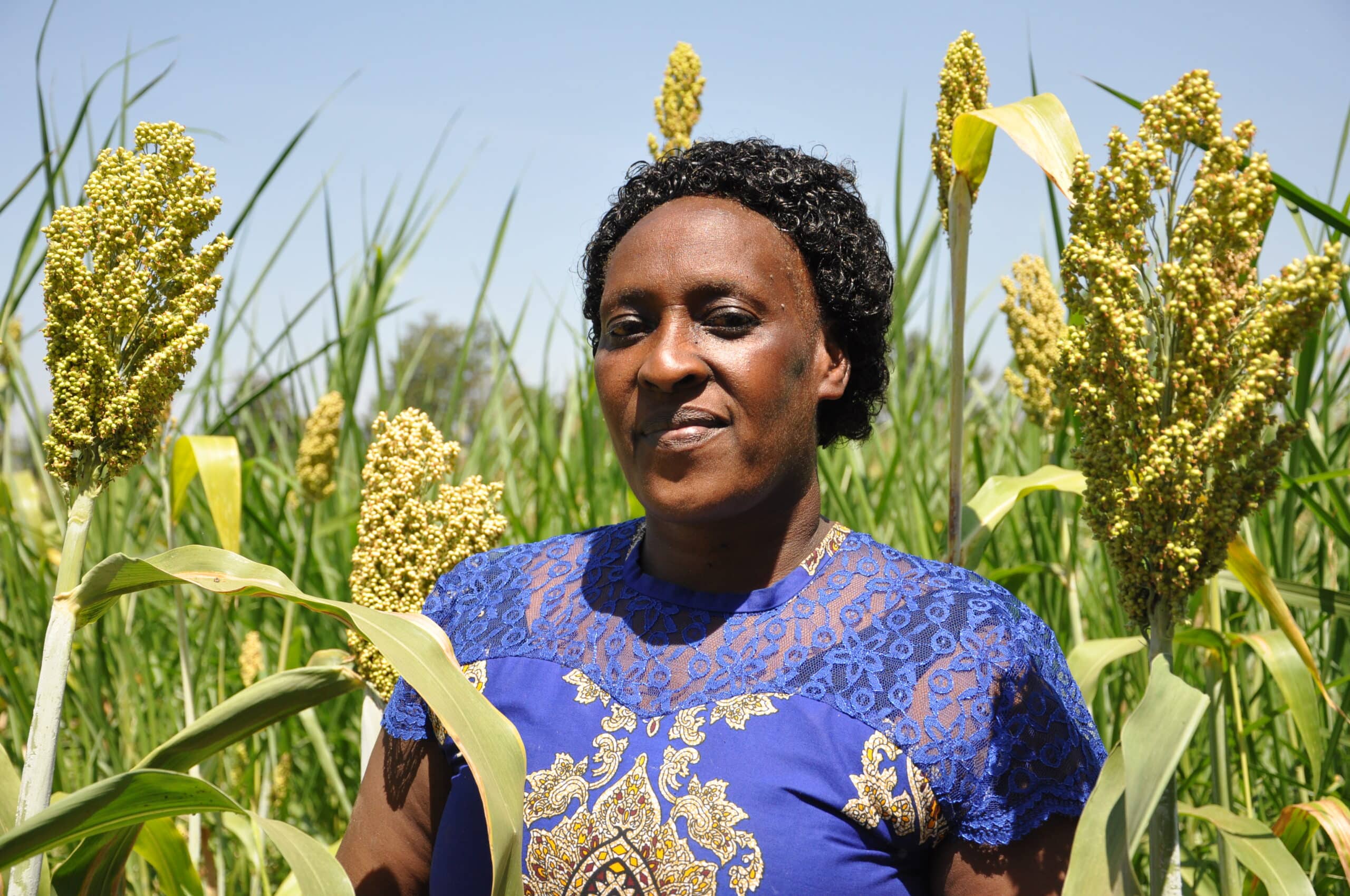
Announcing Our New Climate Resilience Roadmap Annual Report
Deep in the Meru region of Kenya, Shalem Investments has witnessed firsthand the effects of shifting
Date:
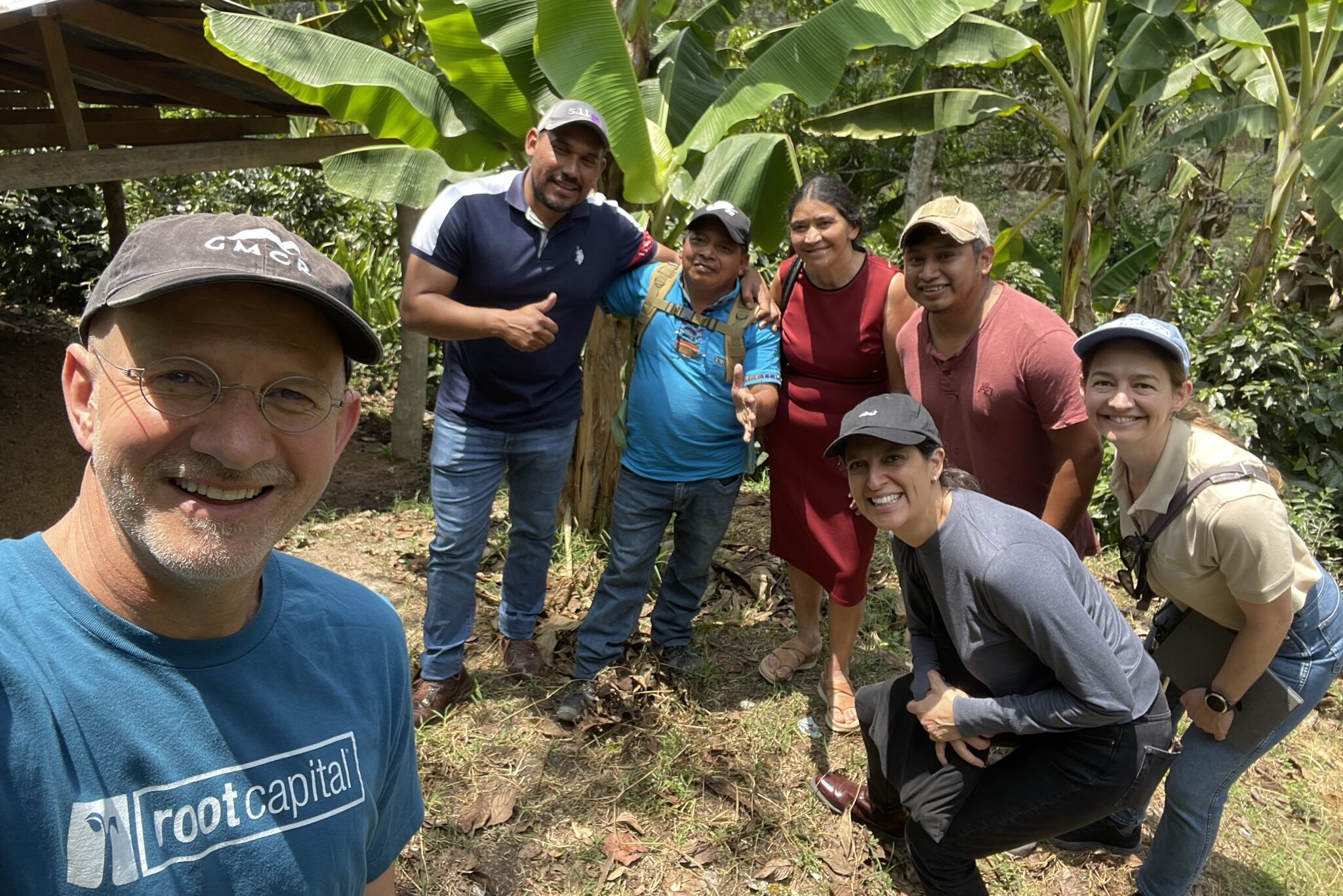
IN PHOTOS: How Small Businesses Are Driving Rural Prosperity and Tackling Climate Change in Honduras
In March, I went on my fourth trip with Root Capital—one very near and dear to my heart because it was to my home country: Honduras. As someone who was born and grew up there—and who has since spent a career working to address the challenges of poverty, climate change, and migration in this region and beyond—it was very meaningful to once again be amid the verdant farms and vibrant communities at the heart of this work…
Date:
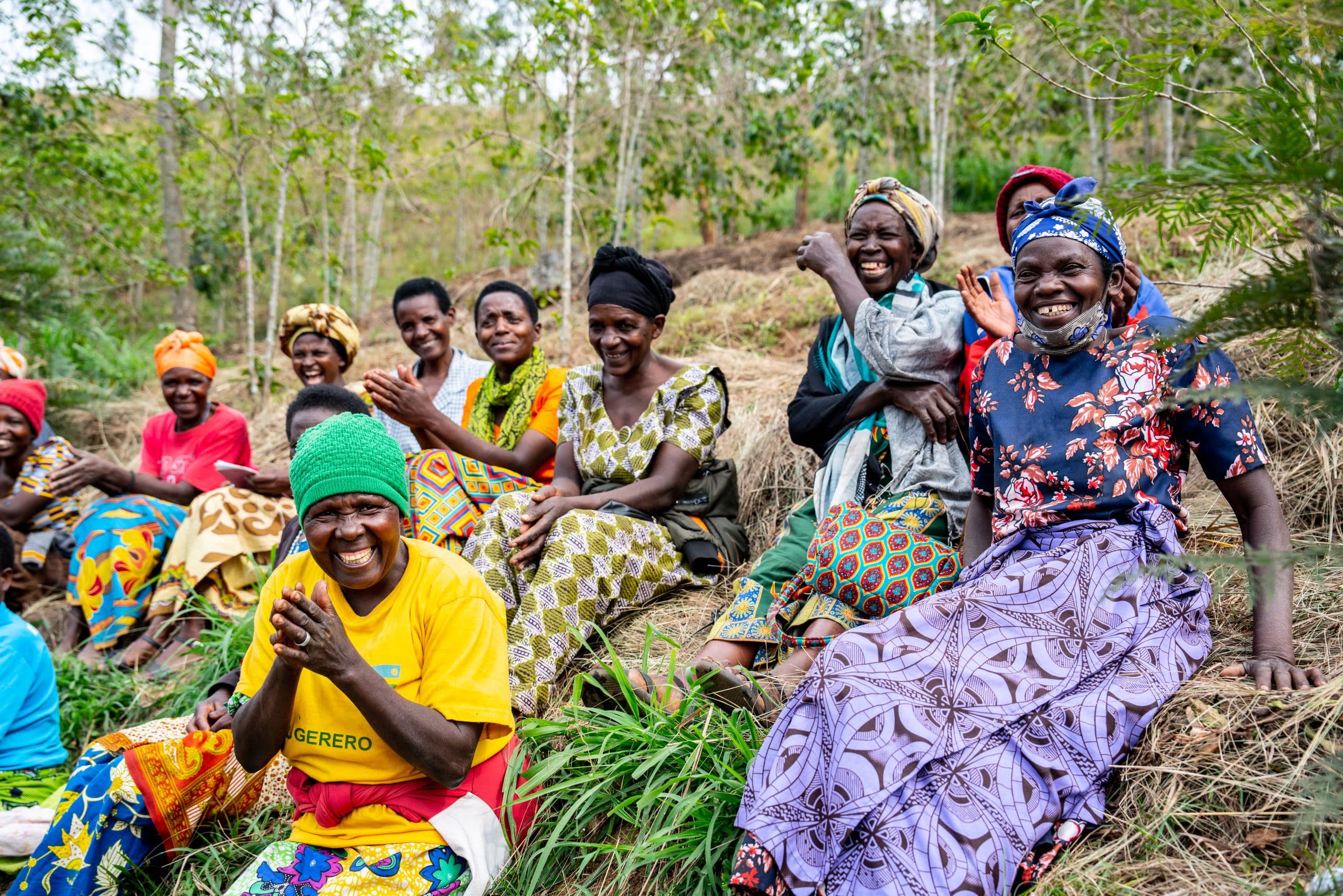
Announcing Our 2021-2022 Biennial Report
Root Capital is one of more than 1.8 million nonprofit organizations in the U.S. This National
Date:

